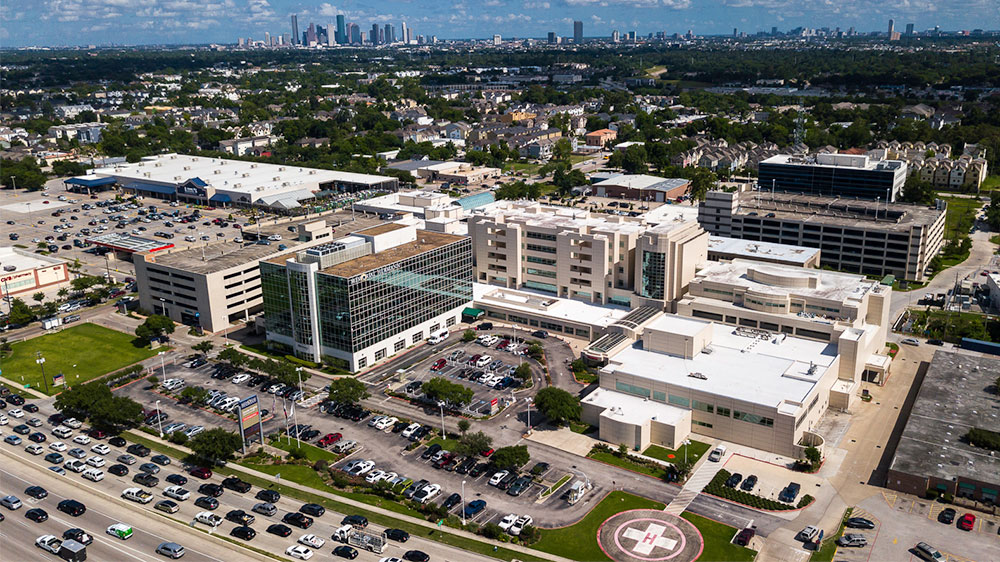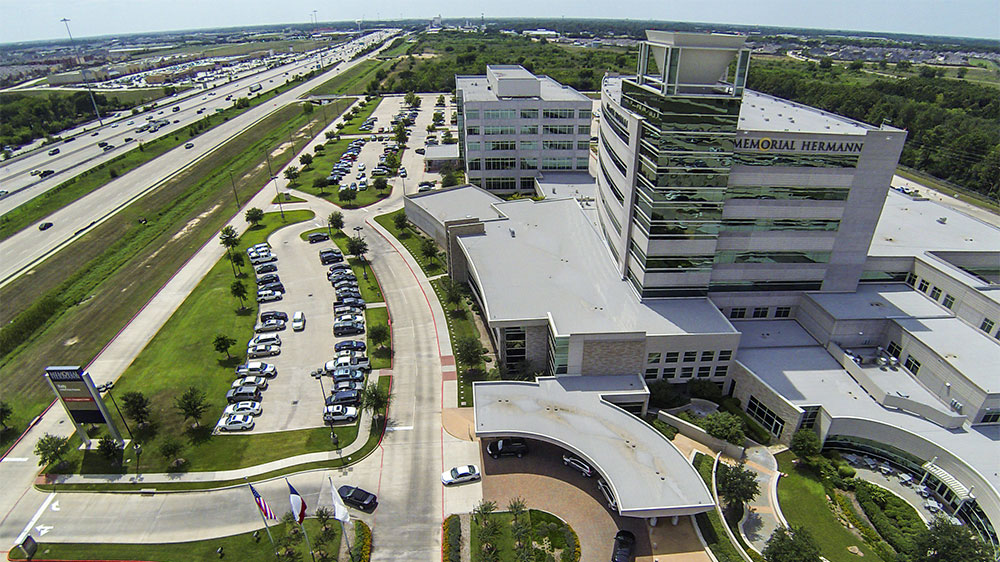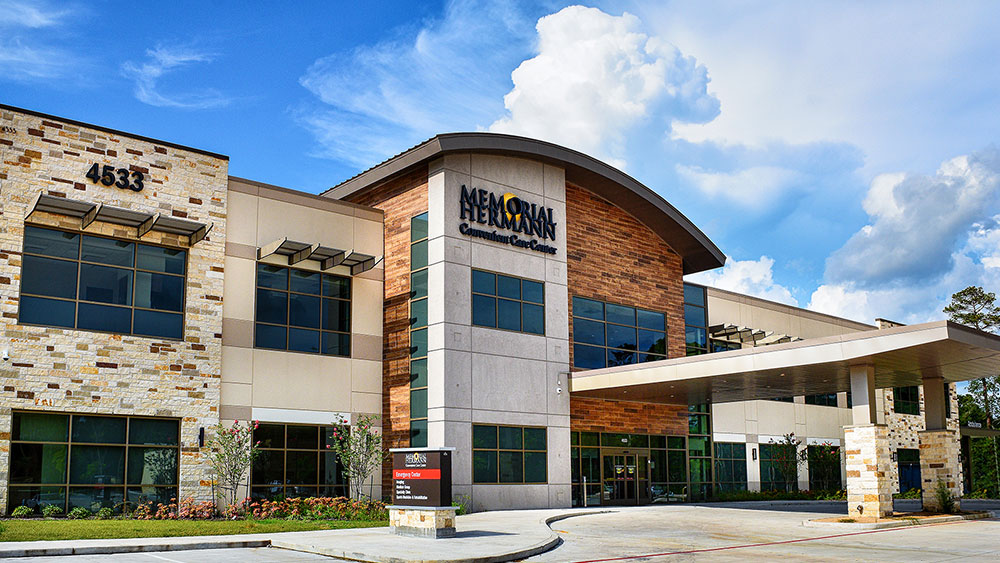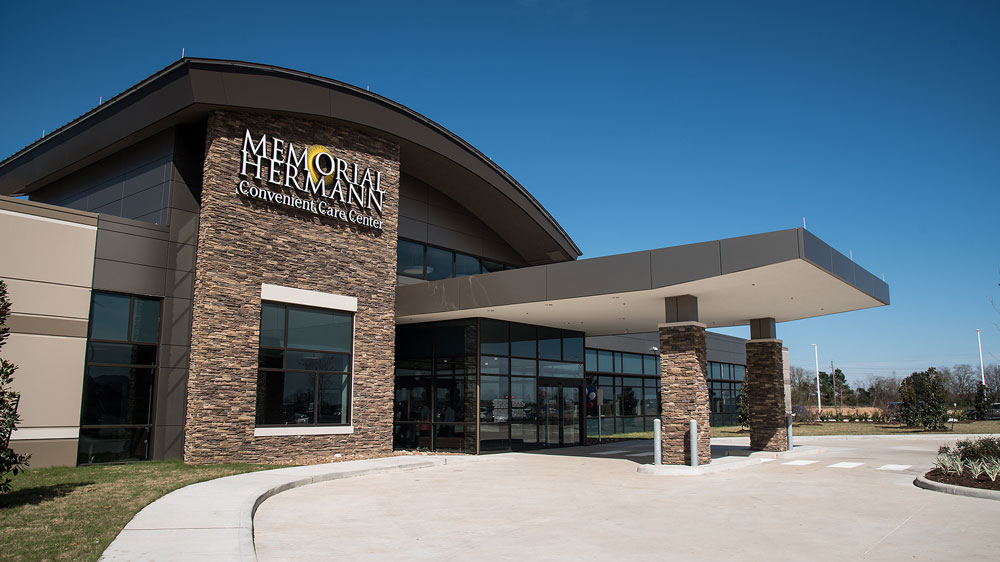
The American Cancer Society recommends that women begin annual breast cancer screenings at age 40, and with the latest advancements in breast cancer screenings, early detection is now more accurate and accessible than ever.
However, despite studies that have shown increased breast cancer survival is tied to early detection, only 65% of women, aged 40 and older, say they have had a breast cancer exam in the past two years.
At Memorial Hermann, we understand annual breast imaging exams might not be something you look forward to, but our Breast Care Centers across Greater Houston are staffed by breast care specialists and equipped with the latest imaging technology. Together, we strive to make potentially life-saving breast cancer screenings - including breast MRIs - as quick and painless as possible.
What is a Breast MRI?
Magnetic resonance imaging (MRI) is a non-invasive imaging technique that produces detailed, three-dimensional scans of the body.
Unlike X-rays or computed tomography (CT) scans, MRIs do not use radiation. Instead, magnetic and radio waves are used to detect the movement of water molecules in the body. This makes MRIs uniquely suited to scan softer, non-bony parts of the body, like the breast.
Why Do I Need a Breast MRI?
An MRI is only one way to look at specific tissues and is often paired with other exams, such as mammograms or breast ultrasound imaging. If you are at a high lifetime risk of developing breast cancer, the American Cancer Society recommends pairing your annual Breast MRI with yearly mammography.
Breast MRIs are often recommended by radiologists to further evaluate undetermined physical exam findings or unclear breast imaging results from a mammogram or ultrasound. An MRI, for example, can help determine if a breast lump is malignant (cancerous) or benign (non-cancerous).
If you have already been diagnosed with breast cancer, a breast MRI may be useful in detecting if the cancer has spread to the axillary lymph nodes (located in your underarm area) or to other parts of the breast.
Breast MRIs may also be helpful in:
- Screening for women with dense breast tissue
- Determining breast cancer stage
- Looking at breast tissue changes during treatment for breast cancer
- Evaluating nipple inversion for signs of breast cancer
- Finding breast implant ruptures (silicone)
- Planning surgery after positive biopsy results
What To Know Before Your Breast MRI

Like standard MRIs, breast MRIs require an IV to administer a "contrast agent" before the procedure. This special medication improves visualization and provides more detailed information about blood vessels and organs during the scanning process.
On rare occasions (less than 1% of cases), women have an allergic reaction to the contrast agent. If you have had a reaction to MRI contrast in the past, be sure to notify your imaging technologist.
Breast MRI machines use high-powered magnetic and radio waves to produce detailed images of your breast, and some medical implants cannot be scanned. So, please let your doctor and imaging technologist know immediately if you have any of the following in or on your body:
- Tattoos
- Piercings and other jewelry
- Pacemakers
- Insulin pumps
- Cochlear implants
- Other medical devices
How Does a Breast MRI Work?
Certain medical conditions may prevent you from having a breast MRI, so the technologist will ask a series of screening questions before you get started. For example, breast MRI exams must be scheduled 7-14 days after the onset of your menstrual cycle to ensure maximum accuracy.
Before your breast MRI, you will be required to change into a gown and scrub pants. Once inside the MRI machine, you will lie on your stomach on a coil or platform with openings for your breasts to hang freely. Your arms will be positioned above your head. You may also be connected to a special IV if a contrast agent is needed during the scan. To ensure the clarity of your scan, and to avoid the need for a repeat scan, it’s important to stay completely still during your breast MRI.
Depending on the number of scans needed, a breast MRI can take anywhere from 30 to 60 minutes. The dedicated staff at Memorial Hermann Breast Care Centers understand that some patients might feel claustrophobic when lying in a cylindrical space, and our technologists will do their best to make you as comfortable as possible. To drown out the 'knocking' sound of the MRI magnet, you will be given ear protection and a headset, allowing you to speak with the technologist via microphone while the scan is in progress. You will also be given an "emergency ball" to hold. If at any point you feel anxious or frightened, a simple squeeze will alert the technologist to stop the exam immediately.
When Should I Expect Results from My Breast MRI?
Once your exam is complete, the scans will be sent to one of our affiliated radiologists to interpret your results. A full report may be sent to your primary care physician. This process usually takes about 2-3 business days, and your primary care physician will schedule a follow-up appointment with you to go over the results.
Advanced Breast Care in Houston at Memorial Hermann
Where you go for your breast MRI matters. Often, standalone imaging centers do not have the special magnets needed to conduct a breast MRI or access to radiologists who are trained to read breast MRIs. Memorial Hermann offers comprehensive breast care services at convenient locations across Greater Houston, and we can help make your breast care as simple and quick as possible.
Please bring a CD of your prior studies if your prior breast health studies were performed outside of Memorial Hermann. If you need us to request your prior films from another facility, please complete a medical release of information form and return it to our facility prior to your appointment. Once received, we will request the films. Comparison with prior imaging is key to assessing for change and accurate diagnosis.
Make an Appointment
If you have a physician's order for a breast MRI, schedule by calling (877) 40-MAMMO (62666) today.
Contact Us
Complete the form below to be connected to our Nurse Navigator – a dedicated registered nurse who specializes in breast health and is available to provide education and resources.














